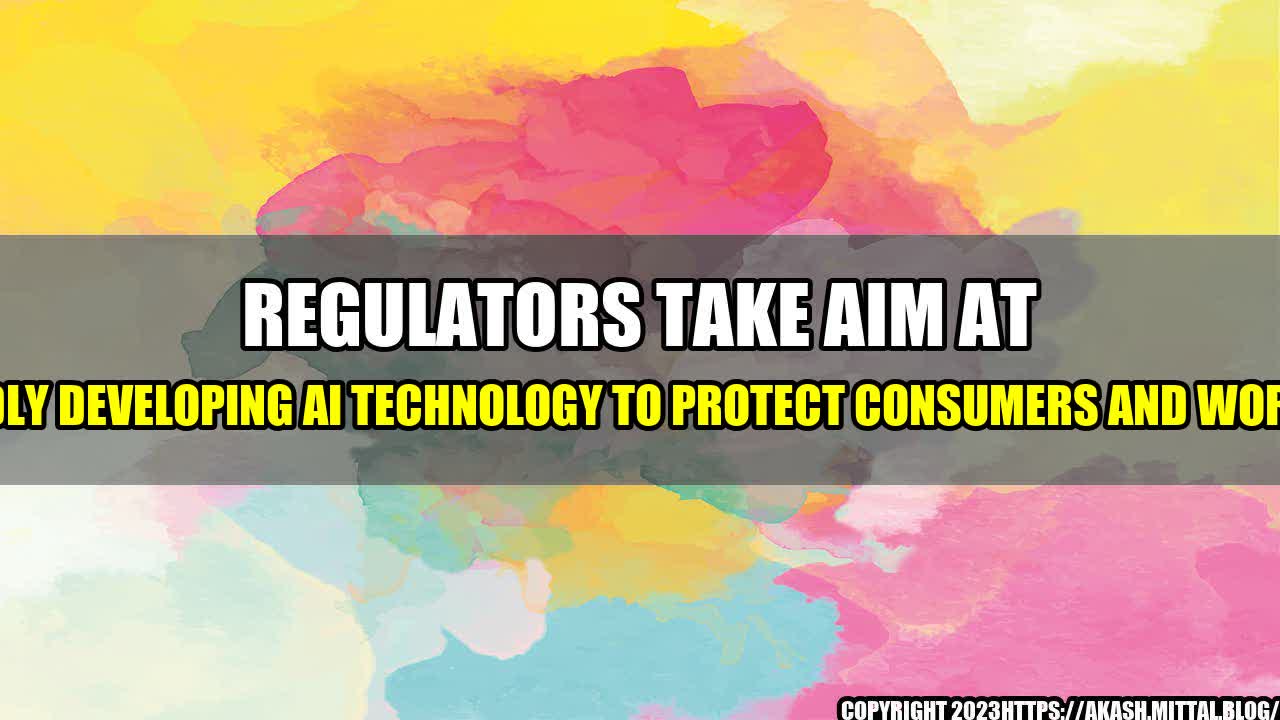The world is witnessing a rapid development of Artificial Intelligence (AI). Although AI is known to pervade almost all spheres of human life, its tremendous growth has become a concern to consumers, workers, and regulators. People are becoming worried that AI-powered systems will take over human jobs, and AI-powered gadgets will compromise their privacy and safety. However, regulators have stepped in to strike a balance between the growth of AI and the safety of employees and consumers.
An Example of AI Posing a Threat to Worker Safety
Recently, the use of AI in Amazon's workplace has come under fire for posing a threat to its employees. Amazon uses AI-powered robots to sort and pack customers' orders. Although the robots increased job efficiency, they created safety issues. Amazon employees reported that the robots move at a very high speed and without warning, increasing the chances of accidents. Due to the safety concerns, regulators have intervened to ensure the safety of the employees by investigating and creating codes of ethics that the AI should adhere to.
Regulators Intervening to Protect Consumers and Workers
Regulators are taking action to secure the safety and privacy of consumers and workers. For instance, the EU's General Data Protection Regulation (GDPR) is a regulation that protects the data privacy of European Union citizens. The regulation gives citizens the right to know how their data is being used and demand that their data be erased at their convenience. Another example of regulatory action to protect privacy is California's Consumer Privacy Act (CCPA), which gives consumers the right to know what data has been collected and enables them to have a say in how the data is used.
Ethical Considerations
One of the most crucial ethical considerations that regulators should take into account is fairness. AI systems should be fair and non-discriminatory. The threat of bias in AI jobs is becoming a concern, with employment and promotion decisions being made by AI systems. The AI systems are trained on past human decisions, meaning the system will pick up the biases of past decisions. Regulators are taking a proactive approach to identify and minimize the bias in AI systems. The aim is to reduce the bias and make the AI system fair in a way that benefits everyone, regardless of race, gender, or social status.
Conclusion in Three Points
As regulators take aim at the rapidly developing AI technology, we can conclude that:
- Regulators are taking a proactive approach to ensure AI systems do not pose a threat to worker safety and the privacy of consumers.
- The creation of ethical codes of conduct for AI systems is providing guidance to AI designers and developers on issues such as bias and data privacy to make AI systems fair to everyone.
- The continued collaboration between AI developers and regulators is creating an environment where AI can grow, innovate, and prosper without creating safety, ethical, or privacy concerns to consumers and workers.

Curated by Team Akash.Mittal.Blog
Share on Twitter Share on LinkedIn